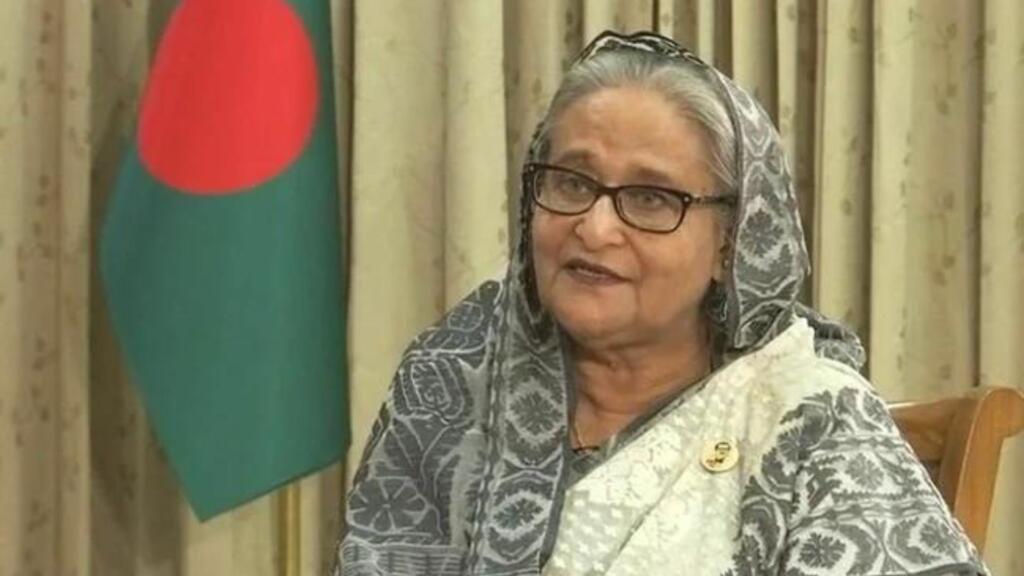In recent times, the political landscapes of both Bangladesh and the Maldives have witnessed the emergence of the “India Out” campaign, spearheaded by opposition factions. These movements aimed to leverage anti-India sentiment for political gains, advocating for the boycott of Indian products and the reduction of Indian influence in their respective countries. However, the swift response from the leaders of both nations, Sheikh Hasina of Bangladesh and Mohamed Muizzu of the Maldives, sheds light on the intricate dynamics between political rhetoric, economic realities, and international relations.
The India Out Campaign
In Bangladesh, the “India Out” campaign, spearheaded by the Bangladesh National Party (BNP), has emerged as a contentious issue, aiming to challenge the ruling party’s perceived closeness with India. However, Prime Minister Sheikh Hasina’s swift dismissal of the campaign during Bangladesh’s Independence Day celebrations has brought into question the feasibility of such rhetoric. Hasina’s pointed remarks about the prevalence of Indian saris even among opposition leaders’ families have highlighted the deep-rooted interconnectedness between the two nations.
The Genesis of the Campaign
The “India Out” campaign was initiated by the BNP as a strategic move to capitalize on anti-India sentiment and garner support among voters. It aimed to portray the ruling party as too aligned with Indian interests, thereby positioning the BNP as a more nationalist alternative.
Hasina’s Response
Prime Minister Sheikh Hasina’s response to the “India Out” campaign was swift and decisive. During Bangladesh’s Independence Day celebrations, she publicly dismissed the campaign, highlighting its impracticality. Hasina’s stance underscored the pragmatic realities of Bangladesh’s relationship with India, emphasizing the interconnectedness between the two nations in various aspects, including personal ones such as the prevalence of Indian saris among opposition leaders’ families.
Interconnectedness and Pragmatism
Hasina’s remarks about the prevalence of Indian saris among opposition leaders’ families serve as a poignant reminder of the deep economic, cultural, and personal ties between Bangladesh and India. Such interconnectedness goes beyond political rhetoric and underscores the pragmatic reality of bilateral relations. While political maneuvers may seek to exploit nationalist sentiments, the practical considerations of economic dependence and cultural integration cannot be ignored.
Also Read: Maldives’ Economic Mirage and The Toll of the Missing Indian Tourists.
The Maldivian Context
Under President Muizzu’s leadership, the “India Out” campaign gained momentum, with rhetoric aimed at challenging India’s influence in the Maldives. The campaign sought to pivot towards China, portraying it as a more favorable partner and criticizing India’s alleged dominance in the region.
A Pragmatic Realignment
Muizzu’s abrupt change in stance, shifting from anti-India rhetoric to emphasizing India’s significance as a close ally, underscores the pragmatic realities facing the Maldives. The nation’s significant debt owed to India, totaling approximately $400.9 million, highlights its dependency on Indian financial assistance for economic stability and development.
Economic Dependency and Diplomatic Realities
The Maldives’ economic reliance on India underscores the nuanced dynamics of bilateral relations. Despite political rhetoric advocating for distancing from India, the economic realities necessitate a pragmatic approach towards maintaining a close relationship with its neighboring ally.
Lessons Learned and Future Directions
Muizzu’s U-turn on the “India Out” campaign serves as a lesson in the complexities of diplomatic maneuvering. As the Maldives navigates its future trajectory, it must balance political rhetoric with economic imperatives, recognizing the importance of maintaining a stable and mutually beneficial relationship with India while exploring avenues for diversification and strategic partnerships.
The “India Out” campaigns in both Bangladesh and the Maldives, despite their initial fervor, ultimately encountered the sobering realities of political pragmatism and economic interdependence. Sheikh Hasina’s firm rebuttal in Bangladesh and Mohamed Muizzu’s volte-face in the Maldives serve as poignant reminders of the complexities underlying regional dynamics and the imperative of navigating them with a balanced perspective. As these nations continue to chart their courses on the global stage, the lessons learned from these experiences will undoubtedly shape their future interactions with neighboring powers.
Also Read: The ₹3,000 Crore Theft: PM Modi’s Bid to Cleanse West Bengal’s slate from Trinamool Congress’ fraud
